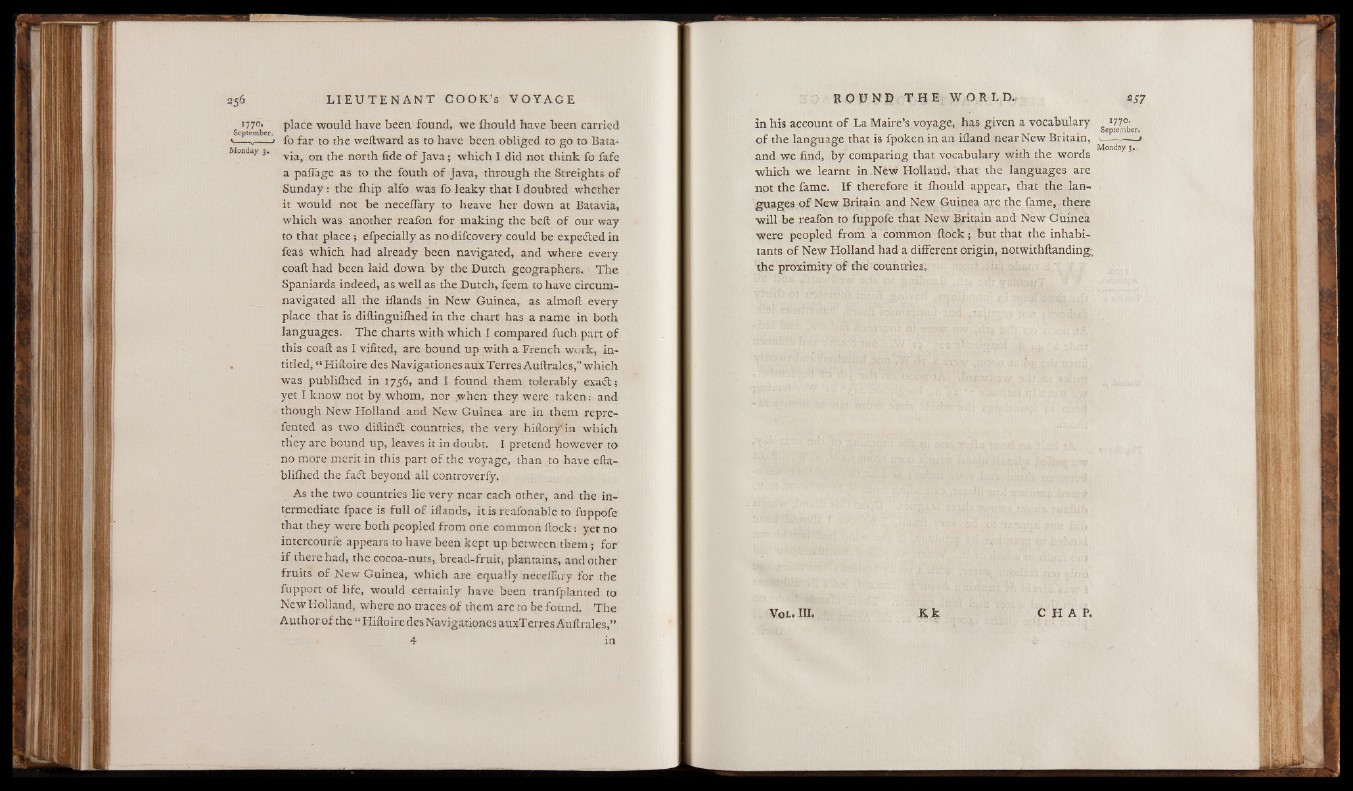
r77°- place would have been found, we fhould have been carried
September.
'---------/ lo far to the weftward as to have been obliged to go to Bataonday
3. yja> Qn ^ nonh fide of Java; which I did not think fo fafe
a paffage as to the fouth of Java, through the Streights of
Sunday: the fhip alfo was fo leaky that I doubted whether
it would not be neceffary to heave her down at Batavia,
which was another reafon for making the beft of our way
to that place ; efpecially as no difcovery could be expected in
feas which had already been navigated, and where every
coaft had been laid down by the Dutch geographers. The
Spaniards indeed, as well as the Dutch, feem to have circumnavigated
all the iflands in New Guinea, as almoft every
place that is diftinguifhed in the chart has a name in both
languages. The charts with which I compared fuch part of
this coaft as I vilited, are bound up with a French work, in-
, titled, “ Hiftoire des Navigationes aux Terres Auftrales,” which
was publifhed in 1756, and I found them tolerably exatft;
yet I know not by whom, nor .when they were taken: and
though New Holland and New Guinea are in them repre-
fented as two diftindt countries, the very hiftory'in which
they are bound up, leaves it indoubt. I pretend however to
no more merit in this part of the voyage, than to have efta-
blifhed the fadl beyond all controverfy.
As the two countries lie very near each other, and the intermediate
fpace is full of iflands, it is rcafonable to fuppofe
that they were both peopled from one common flock: yet no
intercourfe appears to have been kept up between them ; for
i f there had, the cocoa-nuts, bread-fruit, plantains, and other
fruits of New Guinea, which are equally neceflary for the
fupport of life, would certainly have been tranfplanted to
New Holland, where no traces of them are to be found. The
Authorof the “ Hiftoire des Navigationes auxTerres Auftrales,”
4 in
in his account of La Maire’s voyage, has given a vocabulary
of the language that is fpoken in an ifland near New Britain, »—- -— .
. * 1 1 1 Monday 3,. and we find, by comparing that vocabulary with the words
which we learnt in New Holland, that the languages are
not the fame. If therefore it fhould appear, that the languages
of New Britain and New Guinea are the fame, there
will be reafon to fuppofe that New Britain and New Guinea
were peopled from a common flock; but that the inhabitants
of New Holland had a different origin, notwithftanding;
the proximity of the countries.
V O L . III. K.k C H A P .